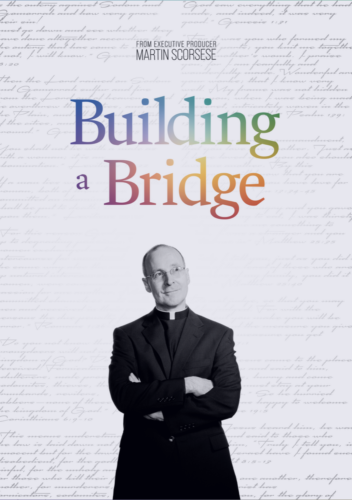The poet and singer Tannhäuser, weary and demoralized, returns from a pilgrimage to Rome so bloody and so exhausted that people he’s known for years don’t recognize him. He had set off to seek absolution from the pope (Urban IV, the legend has it), at the behest of Saint Elisabeth, for having bunked with the goddess of lust in her den, the Venusberg.
But upon his arrival to the Vatican, he is greeted with a harsh proclamation: “If you have enjoyed such sinful delights and enflamed your passions at the fires of hell, if you have sojourned in the Venusberg, then, now from henceforth, you are eternally damned!”
The pope, tauntingly twisting the knife as he denies the pilgrim absolution, adds the impossible condition that until his wooden staff springs forth with leaves, heaven’s door will remain closed to Tannhäuser. Yet as soon as Tannhäuser expires, Elisabeth’s dying prayer for mercy towards her beloved poet is answered. Pilgrims announce that the pope’s staff is suddenly “decked with fresh green” and Tannhäuser’s absolution, secured through Elisabeth rather than the pope, is assured.
When it comes to Tannhäuser’s transgressions, according to the pope, forgiveness and inclusion are as preposterous as a flowering staff.
Love, redemption and spirituality are familiar themes in the operas of Richard Wagner, of which “Tannhäuser,” based on medieval German and mythological sources, is the fifth and one of the most frequently performed. (It was the centerpiece of last year’s Salzburg Easter Festival and was revived at New York’s Metropolitan Opera last fall).
But what has stuck with me since my latest listen isn’t the self-abasing nobleness of Elisabeth’s prayerful sacrifice or the way Wagner sketches with such musical precision the ambivalence of Tannhäuser’s turn to God. I’m instead carrying the heaviness of the pope’s refusal, a refusal which sets the imminently fallible Tannhäuser back in pursuit of Venus’s carnal non-fulfillment before Elisabeth’s prayer is answered.
These words are meant to sting. When Tannhäuser recounts his audience, he does so in punchy, heavily accented quarter- and eighth-notes that jab the tenor towards the upper reaches of his range with exasperated zeal. Opera fans often describe this lengthy monologue, colloquially called the “Rome Narrative,” using words like “punishing”—a descriptor of its form as much as its content.
When it comes to Tannhäuser’s transgressions, according to the pope, forgiveness and inclusion are as preposterous as a flowering staff.
This is a story about disastrous pastoral failure.
Yet thwarting our expectation and understanding of tragedy through the musical transcendence that will resolve Tannhäuser’s dilemma is the hallmark trump card in Wagner’s hand. It’s what makes his operas, and the characters in them, so rewarding and complex for listeners.
But it’s Venus herself, tempting him back to her, who names the incontrovertible tragedy at the center of the opera: “Did the world strike you with ostracism and excommunication? And, finding nowhere pity, do you now seek love in my arms?” This is a story about disastrous pastoral failure.
Cardinal Robert W. McElroy’s essay for America on “radical inclusion,” however, has helped me process what that means for the 21st-century Catholic, audience member and Wagnerian.
“Pastoral practices that have the effect of excluding certain categories of people from full participation in the life of the church” he adds, channeling Wagner’s faceless Pope Urban, “are at odds with this pivotal notion that we are all wounded and all equally in need of healing.” Ostracism and excommunication, the cardinal tacitly acknowledges, have littered the thresholds of America’s churches.
Ostracism and excommunication have littered the thresholds of America’s churches.
Despite his truculence and the mythological scope of his sin, Tannhäuser and his conflicted search for forgiveness is immediately relatable (and recognizable as the worst-case scenario) for anybody holding their breath as step over that threshold, hoping for validation of their faith, personhood and worthiness to stand in community with others.
The cardinal even acknowledges the church’s labeling of all sexual sins as grave matter to be a pastoral failure. “The effect of the tradition that all sexual acts outside of marriage constitute objectively grave sin has been to focus the Christian moral life disproportionately upon sexual activity. [In] pastoral practice we have placed it at the very center of our structures of exclusion from the Eucharist.”
As an avatar for the sexual sinner, heretofore one of the church’s libidinous lepers, Tannhäuser is a casualty less of his own sin than he is of a pernicious clerical prejudice that obscures the boundary between the virtuous and the reprehensible, the gray area beyond which we strive to move every day.
It highlights the fallacy in the question (“If you would rob a sinner of hope, then say, what harm has he done you?) Elisabeth poses rhetorically to the knights who condemn Tannhäuser to exile. He affirms that “the dignity of every person as a child of God struggling in this world, and the loving outreach of God, must be the heart, soul, face and substance of the church’s stance and pastoral action.”
To “rob a sinner of hope” is a powerful catalyzer for estrangement from the church and, more significantly, from God.
Indeed, to “rob a sinner of hope” is a powerful catalyzer for estrangement from the church and, more significantly, from God. And while he was no moral theologian (Wagner was a notorious antisemite, among other things), his idea of redemption, present in the text but truly exulted in the music, is one that transcends petty pastoral barriers and vain, sex-obsessed moralizing. It raises up the imperfect, offers salvation to the sinner and implicates each of us in the spiritual journeys of one another.
It is, once again, an exciting and painful moment to live as a Catholic, especially when voices tinged with bias and simplistic moralism threaten to swamp the pastoral narrative. So, words like Cardinal McElroy’s, refreshing in their insistence on inclusion, appear like miracles to those of us (like Tannhäuser) trying to cut through noise and antagonism to just be better.
They are yet another blossom budding on the staff of a mercifully expanding church, and they are arriving just in time.




